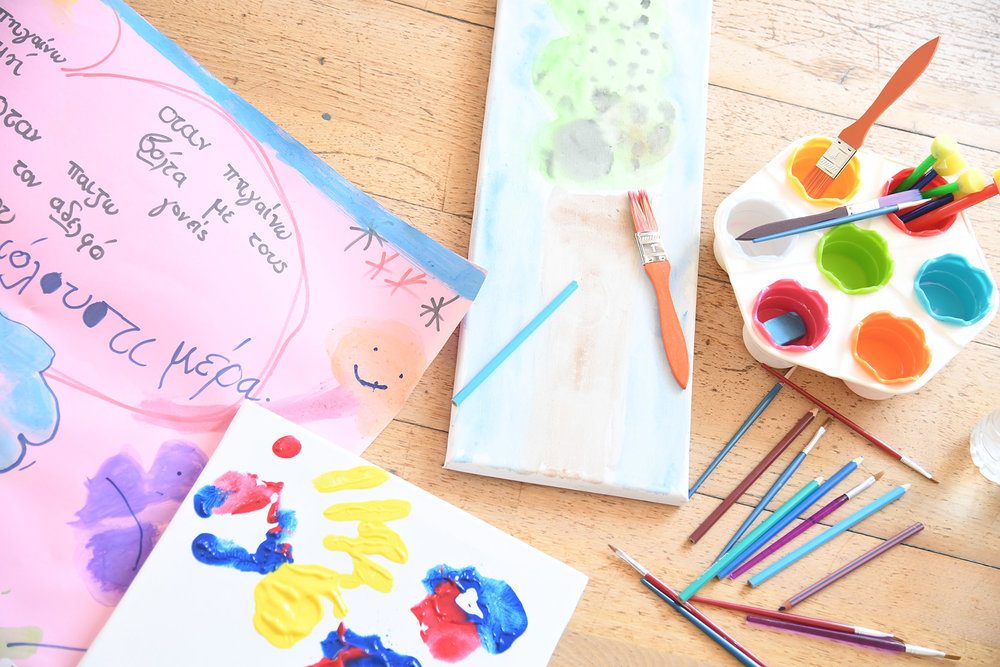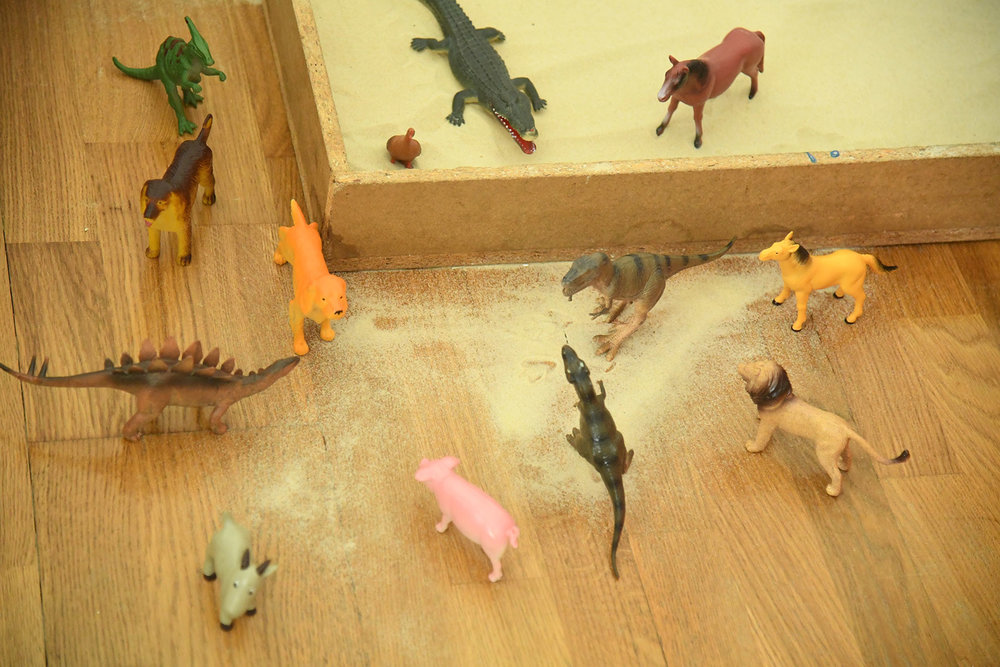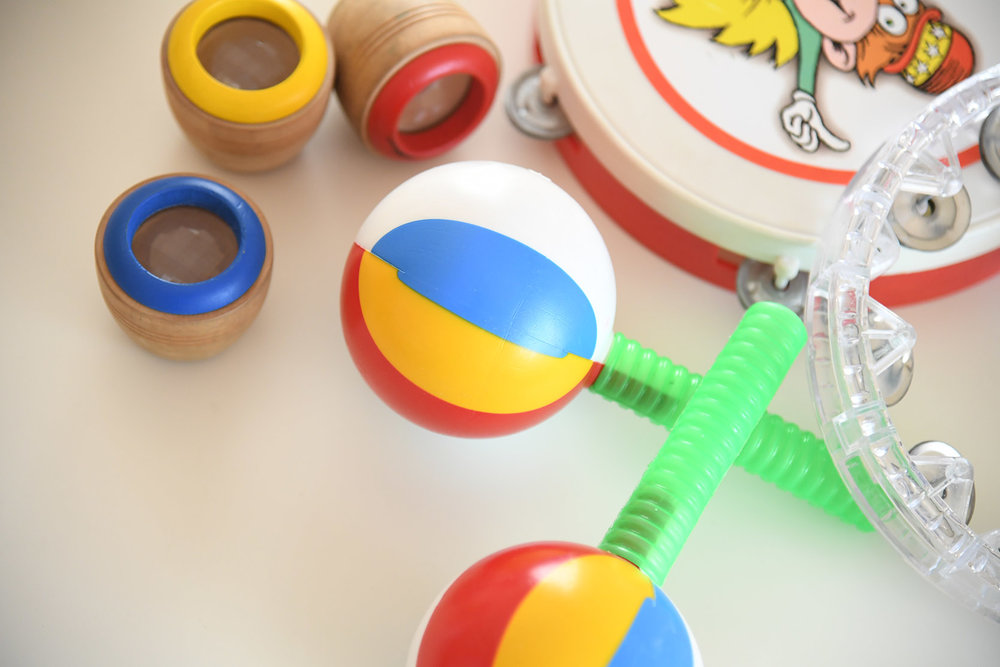_
Play is not a luxury, it’s a necessity.
_
Play Therapy
Below you will find answers to the questions most frequently asked by parents about Play Therapy.
Why should I consider the play suitable as a means of treatment?
If a parent is asked why he or she purchases toys for the child, there may be a spontaneous response “because I love my child”, “I want my child to have some fun”, “I want to give some stimuli”, “this way he or she expresses himself/herself and learn” and many other “right” responses which justify the above question. Thus, besides the fun of the play, we recognize it as a tool with the help of which our child speaks to us, expresses himself/herself to us and tells us what he or she feels. One would say that play is the child’s words, which he or she uses to give meaning to what is happening inside, but also to externalize the experiences of his or her everyday life.

What exactly is Play Therapy?
As we can guess by its title, the Play Therapy “requires” a play! It is about an empirically structured approach, which adopts the natural way of children’s communicating that is no different from the play. In Play Therapy, the play is like words and the playing process is the language of the child.
What you need to understand is how much the normal play, that the child is doing alone, differs from those doing with his parents or with his friends. The basic concern of a therapist is not the child to follow the rules or be able to create something good with his/her imagination, but to help him or her express and settle the difficulties gradually. The therapist’s aim is to facilitate the play, to perform different roles, so that the child can explore alternatives and solutions. Gradually, children can learn more appropriate behaviors, shaping a healthy relationship with themselves.
How Does Play Therapy Work?
The child is referred for treatment in order to resolve some difficulties, whether by the teacher, the pediatrician, other specialists or even friends / or relatives. The certified therapist will evaluate and understand the child’s behavior through the play, while using the clinical observation.
In a properly arranged room that provides the necessary toys and with the help of an experienced therapist, the child will be allowed to find new and more relevant solutions for it. The child can encounter even more difficult and complicated problems and “rehearse” a number of ideas, hence better prepare himself or herself until he/she can gradually transfer them to his/her real life.
Who can benefit from Play Therapy?
As a method, Play Therapy is used in the prevention, diagnosis and treatment of preschool, school and early adolescent age (3 – 12 years). It is true that even teenagers have been favored by treatment techniques that mainly use the game as a tool.

When does a parent need Play Therapy for a child?
Parents try to do the best for their child, offering as much as possible a daily family balanced environment. Sometimes, however, things progress differently because many children may have strong personality, perseverance, or show a negative attitude towards cooperating with their parents. This often results in the loss of patience, as well as the control of the situation by the parents. At a time when the conflicts increase between them during the day, parents begin to feel guilty that they cannot help their children manage their feelings, doubting their parenting skills.
What difficulties does Play Therapy solve?
Play Therapy can help children who:
- Have sleep problems.
- Have a traumatic experience.
- Behavior problems at school and / or at home (e.g. aggression).
- Have been subjected to psychological, physical or sexual abuse.
- Do not realize their entire social or even academic potential.
- Have difficulties in managing the separation of their parents.
- Go through a mourning process.
- Have intense anxiety or have various fears and / or phobias.
- Need to learn to play more effectively with other children and to make friends in more appropriate ways.
- Are often isolated or in a sad mood.
- Have been intimidated or act as offender and often threaten other children.

In what areas does it help a child?
Play Therapy has become more and more popular in recent years for its effectiveness and is selected by parents as the most appropriate form of treatment for the difficulties faced by their children.
In addition, it is important to emphasize that Play Therapy is coequally effective regardless of gender, age or problems. Some of the multiple benefits that children obtain from the Play Therapy are the following:
- Become more responsible and carry out more appropriate methods to solve their difficulties.
- Learn to respect and accept themselves.
- Develop new and more helpful ways of perceiving.
- Develop a more positive behavioral model.
- Learn to express and better manage their feelings.
- Can relieve their daily stress.
- Develop a positive feeling for themselves and their abilities.
- Connect and communicate better with people around.
- Use the skills and roles that are necessary for their daily survival.
It is proven that learning and development are encouraged, but also favored better through the game!
How long does Play Therapy last?
Each session lasts 50 minutes, on a weekly basis, with a frequency of once a week. I always start by explaining to parents that we cannot accurately predict the number of appointments necessary to reduce the symptoms. It is about a mental process that often takes time and needs reassessment. Usually, around 12 appointments (3 months) are needed to observe some changes happened to the child. However, it should be noted that a set of 20 meetings is considered empirically to help resolve the difficulties of a typical child referred for treatment.
It is true that there are factors that help but at the same time make the treatment process more difficult, with the result that some children experience changes earlier, while others need more time. Positive collaboration with parents facilitates the course of treatment and undoubtedly produces a meaningful outcome.
Who can practice Play Therapy?
This is one of the most important questions asked by parents. The practice of Play Therapy requires specialized education, but also continuous experience and supervision. The therapist needs to be registered in the responsible organization, the APT (Association for play therapy).
